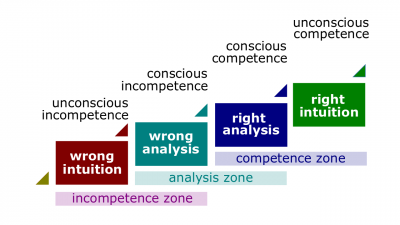Difference between revisions of "Programmed decision"
(→Competence) |
|||
| Line 1: | Line 1: | ||
| − | A [[programmed decision]] (hereinafter, the ''Decision'') is any [[decision]] that | + | A [[programmed decision]] (hereinafter, the ''Decision'') is any [[decision]] to follow a [[policy]], [[operative rule]], another [[regulation]], or to routinely repeat one's previous decision that has been made while handling a similarly [[structured task]]. The ''Decisions'' are opposed to [[non-programmed decision]]s, which are unique and nonrecurring [[decision]]s that require custom-made [[solution]]s. |
| − | |||
| − | |||
Revision as of 20:09, 14 June 2020
A programmed decision (hereinafter, the Decision) is any decision to follow a policy, operative rule, another regulation, or to routinely repeat one's previous decision that has been made while handling a similarly structured task. The Decisions are opposed to non-programmed decisions, which are unique and nonrecurring decisions that require custom-made solutions.
Definitions
According to Management by Robbins and Coulter (14th edition),
- Programmed decision. A repetitive decision that can be handled by a routine approach.
Competence
- Main wikipage: Structured-task competence
Structured-task competence. A model that describes psychological states involved in the process of progressing from incompetence to analytical competence and, further, to intuitive competence in some knowledge, skill, and/or ability.
- Unconscious incompetence (or wrong intuition). A situation in which the individual neither understands nor knows how to accomplish a task and does not necessarily recognize the deficit.
- Conscious incompetence (or wrong analysis). A situation in which the individual neither understands or knows how to accomplish a task, but he or she recognizes the deficit. He or she also realizes the value of new knowledge, skill, and/or ability needed in addressing the deficit. The making of mistakes can be integral to the learning process at this level of competence.
- Conscious competence (or right analysis). A situation in which the individual understands and/or knows how to accomplish a task. However, demonstrating the knowledge, skill, and/or ability requires concentration. It may be broken down into steps, and there is heavy conscious involvement in executing the needed knowledge, skill, and/or ability.
- Unconscious competence (or right intuition). A situation in which the individual not only understands and knows how to accomplish a task, but has had so much practice with a skill that it has become "second nature" and can be performed easily. As a result, the skill can sometimes be performed while executing another task. The individual may be able to teach it to others, depending upon how and when it was learned.
